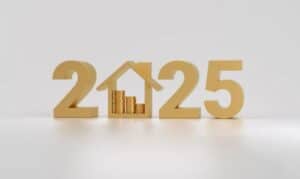We’ve all been told to “save for a rainy day,” but what does it really mean? Well, when it comes to homeowner associations, saving for a rainy day generally means having reserve funds that are there to ensure that when times go sour, money is still there to ensure a thriving community.
That said, how much is enough, and how does one ensure that the reserve has enough money as the years go by? Well, let’s talk about that! But first, let’s talk about HOA reserve funds and reserve studies and what they are:
What Is an HOA Reserve Fund?
An HOA reserve fund is a savings account that is set aside by a homeowners association (HOA) to cover future repair and replacement costs for common area features and amenities. The fund is replenished each month through a portion of the HOA dues paid by homeowners. When unexpected repairs or replacement costs arise, the HOA can tap into the reserve fund to cover the expenses without having to assess a special assessment to the homeowners.
What Is an HOA Reserve Study?
A reserve study is an analysis of a property’s long-term repair and replacement needs and the funding required to maintain the property in good condition. Reserve studies are typically conducted by professional engineers or reserve specialists and can be used by condo and homeowner associations, co-ops, and other types of housing communities to plan for future expenses and stay within their budget.
What’s the Connection between a Reserve Fund and a Reserve Study?
An HOA reserve study is an analysis of the development’s physical components and their estimated useful life. The study also estimates the future repair and replacement costs of these components. Based on this information, the HOA can develop a funding plan to ensure that there is enough money in the reserve fund to cover future expenses.
While an HOA reserve study is not required by law, it is a best practice for HOAs to have one. A reserve study can help an HOA avoid financial problems in the future and provide peace of mind to homeowners.
How Much HOA Reserve Fund Is Enough?
As a homeowner, you know that it’s important to have savings account for unexpected repairs and maintenance costs. But how much should you save? When it comes to your Homeowners Association (HOA) reserve fund, there are a few factors to consider.
The first is the size of your HOA. A smaller HOA will have less need for a large reserve fund, as there are fewer common areas to maintain and repair. A larger HOA, on the other hand, will need a larger fund to cover the costs of common area upkeep.
The second factor to consider is the age of your HOA. A newer HOA will have less need for repairs, as everything is still new. An older HOA, on the other hand, will need to account for the wear and tear of common areas and components.
The third factor to consider is the location of your HOA. An HOA in a rural area will have less need for a large reserve fund than one in an urban area. This is because there are typically fewer common areas in rural HOAs, and those that exist are often less expensive to maintain.
Once you’ve considered these factors, you can start to get an idea of how much HOA reserve fund is enough. A good rule of thumb is to have at least three months’ worth of expenses saved, but ultimately it’s up to you to decide what’s best for your HOA.
Conclusion
As you can see, your reserve funds and reserve study go hand-in-hand in ensuring that your HOA has enough money when tough times arrive now or in the future. That said, figuring out the numbers can be incredibly challenging, especially the more complex your HOA is, as such, we highly recommend reaching out to professionals with experience in such matters. They can assist you in understanding reserve funds and more, helping you come up with a plan that will enable you and your community to be ready for the inevitable “rainy day.”
California Builder Services offer its expertise in DRE public reports processing, HOA budgeting, and reserve studies. If you are in need of California HOA reserve study services and more, get in touch with us today!








